7 Vitamins To Take Care Of Your Brain
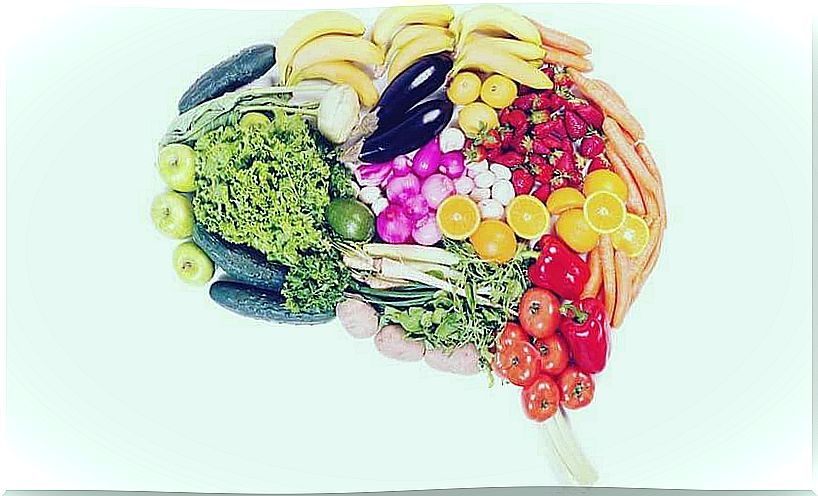
The brain is the most important organ of the human body, since all the functioning of the organism depends on its good performance. When the necessary vitamins and nutrients are not ingested, we usually feel low energy, fatigued or irritable. It is a condition that can make us sick.
In reality, most of us don’t know what vitamins our brains require to work properly. Many times we eat thinking more about the digestive system or our image in the mirror, than about this important organ.
There are substances that help us improve memory and concentration. They also decrease the risk of neurodegenerative diseases, such as Alzheimer’s. With slight modifications in our diet we could achieve surprising results at that level. What are those vitamins that help us take care of the brain? We will tell you right away.
1. Beta-carotene, one of the best vitamins
Beta-carotene is one of the vitamins that should never be lacking in the diet. It is a precursor of vitamin A, which is why it is also called “pro-vitamin A”. Its main contribution is to improve memory and contribute to the long-term preservation of brain cells.
A deficiency in beta-carotene causes serious problems, such as vision difficulties or growth arrest in children. This vitamin is found in foods like carrots and squash. Also in fruits such as melon, papaya or mango.
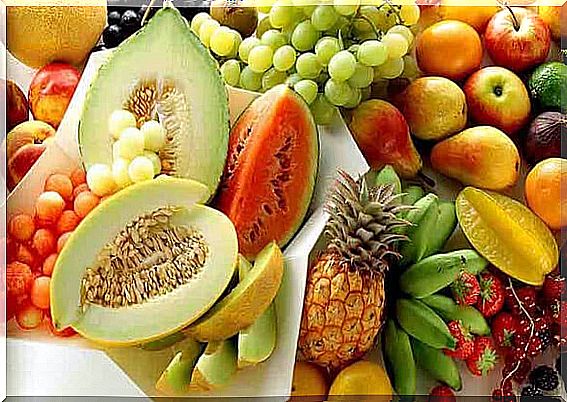
2. Vitamin B1
The entire B complex contains vitamins that are essential for proper brain function. B1, in particular, has great anti-memory impairment effects. It also prevents brain aging and is great for lifting the spirits of people suffering from depression.
Vitamin B1 is also called “Thiamine” and is present in large quantities in the brain and all nervous tissues. It participates in the process of glucose absorption and is therefore ideal for maintaining energy in the body. It also facilitates cardiovascular functions and influences good visual health. It is definitely one of the most complete vitamins.
Vitamin B1 or Thiamine is found in most meats. Mainly in beef, chicken, pork and fish. It is also present in nuts, whole grains, fruits and vegetables.
3. Vitamin B6
B6 is one of the most complete vitamins that we can find. It provides great benefits to the brain, since it favors the formation of neurotransmitters such as dopamine, epinephrine, norepinephrine, GABA and acetylcholine. The function of these neurotransmitters, as the name implies, is to transmit the signals that are produced in neurons. Let’s see:
- Dopamine is associated with reward circuits. It has great effects on the mood.
- Epinephrine and norepinephrine are related to alert systems and are involved in anxiety states.
- GABA regulates states of restlessness and reduces anxiety and stress.
- Acetylcholine is involved in memory processes.
In addition, vitamin B6 helps in the absorption of B12, which is one of the decisive vitamins for cognitive development. Vitamin B6 deficiency facilitates the appearance of problems such as obsessions or depression. It also affects general emotional imbalance and difficulties sleeping. It is present in foods such as wheat germ, rice, potatoes, turkey, beef, chicken, lamb, eggs, milk and dairy products, pork, seafood, lentils, peppers and nuts, among others.
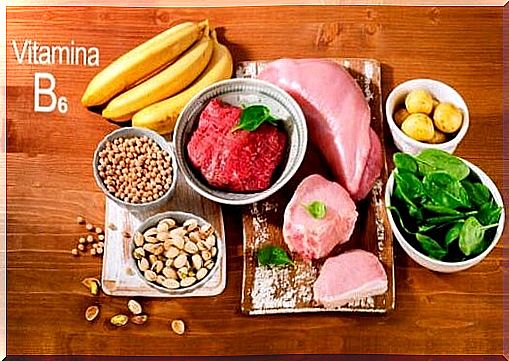
4. Vitamin B9
This is another of the B vitamins that, together with B6 and B12, promote the formation of red blood cells. This contributes to faster oxygen transport and therefore facilitates the proper functioning of the brain.
Vitamin B9 is also known by the name of “folic acid” or “folate.” It plays an important role in mental acuity and in the preservation of brain functions. Like B6, it is involved in the formation of several neurotransmitters. Vitamin B6 deficiency facilitates the occurrence of strokes.
Folic acid is found in foods like legumes, whole grains, spinach and asparagus, brown rice, and oats. It is also in fruits such as banana, orange, melon and avocado. Almost all nuts contain vitamin B9, especially peanuts.
5. Vitamin B12
B12 completes the group of B-complex vitamins that are absolutely necessary for proper brain function. This is, in fact, one of the most important. Contributes to the formation of cells and fatty acids. It is also essential in the synthesis of various substances. Its action is closely related to short-term memory and the speed of thought.
Vitamin B12 deficiency leads to memory loss, mental slowness, and negative mood swings. Many researchers associate B12 deficiency with diseases such as Alzheimer’s. Vitamin B12 is in foods like beef, chicken, turkey, and offal. It’s also in trout, salmon, clams, whole grains, eggs, and dairy products like cheese, yogurt, and the like.
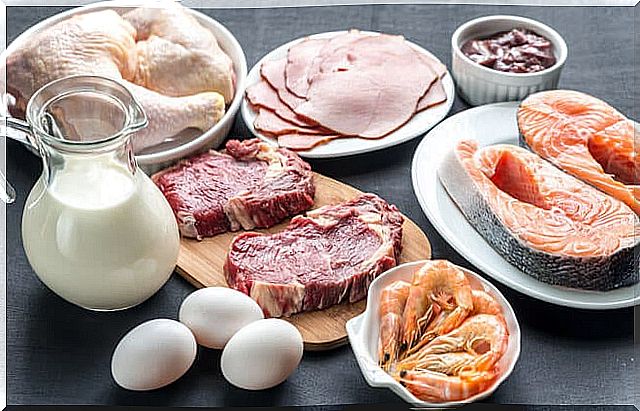
6. Vitamin C
Vitamin C is a powerful antioxidant. Its action protects the brain from oxidative stress and degenerative processes that take place with age. Its role is decisive in preventing the onset of Parkinson’s disease, Alzheimer’s and other forms of dementia.
Likewise, vitamin C contributes to the absorption process of iron. This last element is decisive in functions such as memory and attention. Many people accompany foods with a high concentration of iron, with those that have vitamin C, to achieve a greater absorption of that element.
Vitamin C is also considered a natural antidepressant. It has the ability to increase levels of serotonin, a crucial neurotransmitter in good mood. This vitamin is present in all citrus fruits and green vegetables.
7. Other vitamins
There are many other vitamins that are also very important for the proper functioning of the brain. Among them is vitamin D, which, according to various studies, helps in the improvement of diseases such as multiple sclerosis and in some depressive disorders. This vitamin is found in fish such as sardines, salmon and tuna, and in mushrooms.
Vitamin K, for its part, contributes to improving learning and memory functions. It has been detected that those who suffer from Alzheimer’s also have vitamin K deficiency. This element is found in high concentration in broccoli. It is also in Brussels sprouts, parsley, green leafy vegetables, asparagus, celery, and fermented foods.
Finally, vitamin E and foods that contain Omega-3 fatty acids also make great contributions to brain health. The former is a magnificent antioxidant, while the latter contribute to increase the plasticity of the brain. In both cases, the effect is a greater protection against degenerative processes and a sharpening of cognitive functions.
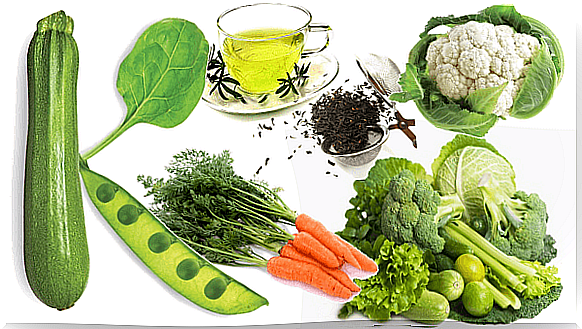
Nutrition is a determining aspect in our lives. Much of health and disease has to do with the way we eat. It is important to become aware of this fact and implement smart nutrition in our lives.









